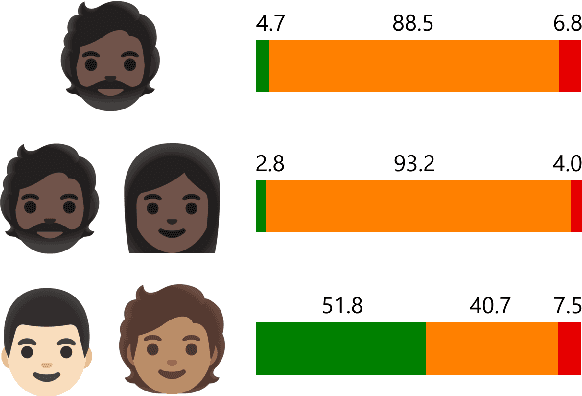Analyzing Hate Speech Data along Racial, Gender and Intersectional Axes
Paper and Code
May 18, 2022



To tackle the rising phenomenon of hate speech, efforts have been made towards data curation and analysis. When it comes to analysis of bias, previous work has focused predominantly on race. In our work, we further investigate bias in hate speech datasets along racial, gender and intersectional axes. We identify strong bias against African American English (AAE), masculine and AAE+Masculine tweets, which are annotated as disproportionately more hateful and offensive than from other demographics. We provide evidence that BERT-based models propagate this bias and show that balancing the training data for these protected attributes can lead to fairer models with regards to gender, but not race.
* Accepted at "4th Workshop on Gender Bias in Natural Language
Processing", NAACL 2022
 Add to Chrome
Add to Chrome Add to Firefox
Add to Firefox Add to Edge
Add to Edge